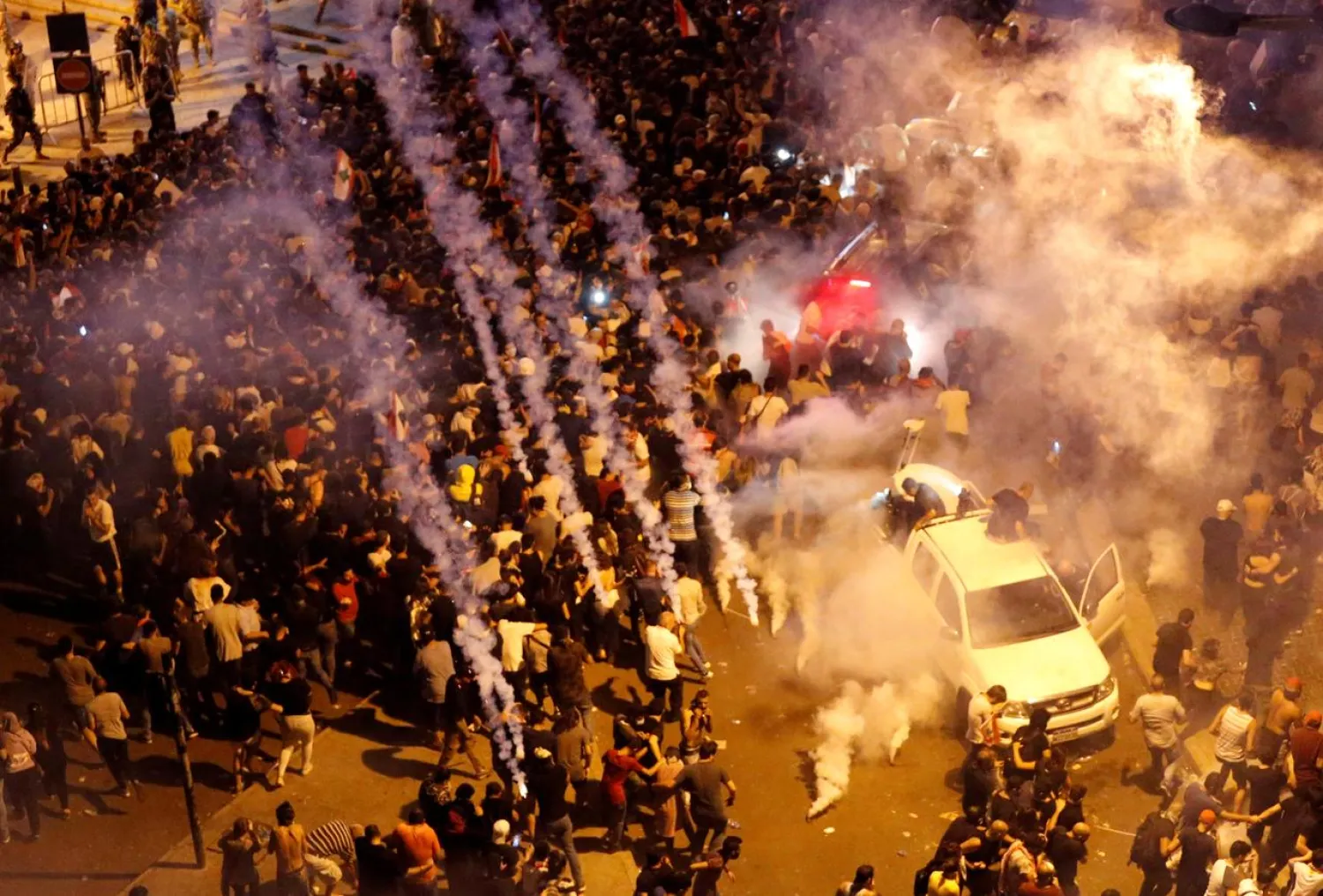Arab and Western ambassadors on Friday held extensive contacts with Lebanese officials after protests swept Beirut and other cities over the rising cost of living and new tax plans.
The diplomats closely observed the developments as angry protesters blocked major highways in Lebanon, demanding the government's resignation in the largest demonstrations in years.
An ambassador of a major power told Asharq Al-Awsat that the protests in Beirut “were a surprise.”
He said the embassy had not anticipated any popular action.
“This move demands the resignation of the cabinet and criticizes the presidential term of Michel Aoun because of tax increases in the absence of any reforms that benefit citizens,” according to the same diplomat.
The protests in Lebanon started after the government said it will impose a charge of 20 cents per day for calls via voice over Internet protocol (VoIP). The cabinet then backed down from the plans and said no additional taxes whould be introduced in the 2020 state budget.
Asharq Al-Awsat learned from diplomatic sources that the ambassadors of some missions of the International Support Group for Lebanon (ISG) were unable to know whether Prime Minister Saad Hariri would present his resignation at the request of demonstrators.
They were also unable to find out whether the VoIP charges had triggered the street protests or whether they were triggered by the authorities’ failure to improve living conditions.
Other sources told Asharq Al-Awsat that the Elysee Palace in Paris was in contact with Hariri on Friday.
The sources said that Lebanon should be careful in taking any decision that would have repercussions on the decisions reached at the CEDRE conference held in Paris last year.
They warned that any miscalculation would worsen the country’s economic situation.









